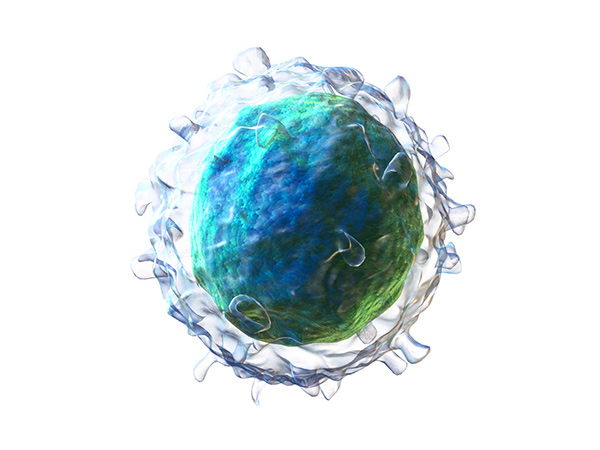Combining Targeted Therapy and Immunotherapy for Non-Hodgkin Lymphoma
The FDA has approved the combination of ibrutinib and rituximab as a new treatment for a rare form of non-Hodgkin lymphoma.

The U.S. Food and Drug Administration (FDA) recently approved a combination of the molecularly targeted therapeutic ibrutinib (Imbruvica) and the immunotherapeutic rituximab (Rituxan) for treating patients with a rare form of non-Hodgkin lymphoma called Waldenström’s macroglobulinemia.
Waldenström’s macroglobulinemia, which is also known as lymphoplasmacytic lymphoma, is a rare and incurable type of non-Hodgkin lymphoma. About 1,100 individuals are diagnosed with the disease each year in the United States, according to the National Cancer Institute.
Ibrutinib became the first treatment approved by the FDA specifically for patients with Waldenström’s macroglobulinemia in January 2015. Before that, treatment for Waldenström’s macroglobulinemia was based on approaches approved by the FDA for other, more common types of B-cell non-Hodgkin lymphoma, including the use of the immunotherapeutic rituximab.
Ibrutinib and rituximab both target the cells in which Waldenström’s macroglobulinemia arises, immune cells called B cells.
Ibrutinib is a molecularly targeted therapeutic that blocks the function of Bruton agammaglobulinemia tyrosine kinase (BTK), which is a protein that is one component of a signaling pathway that fuels the expansion and survival of Waldenström’s macroglobulinemia B cells.
Rituximab targets CD20, a protein on the surface of Waldenström’s macroglobulinemia B cells. After it attaches to CD20, rituximab flags the Waldenström’s macroglobulinemia B cells for destruction by immune cells.
Given that both ibrutinib and rituximab have yielded responses for some patients with Waldenström’s macroglobulinemia, researchers decided to test whether combining them might improve outcomes for patients.
The approval of the ibrutinib/rituximab combination for patients with Waldenström’s macroglobulinemia was based on results from the phase III iNNOVATE clinical trial, according to the developer of ibrutinib, AbbVie. The results, which were published recently in The New England Journal of Medicine, showed that 30 months after starting treatment, 82 percent of patients who received the ibrutinib/rituximab combination had not had their disease progress versus only 28 percent of those who received a placebo and rituximab.
The FDA approval was rendered on Aug. 27, 2018.